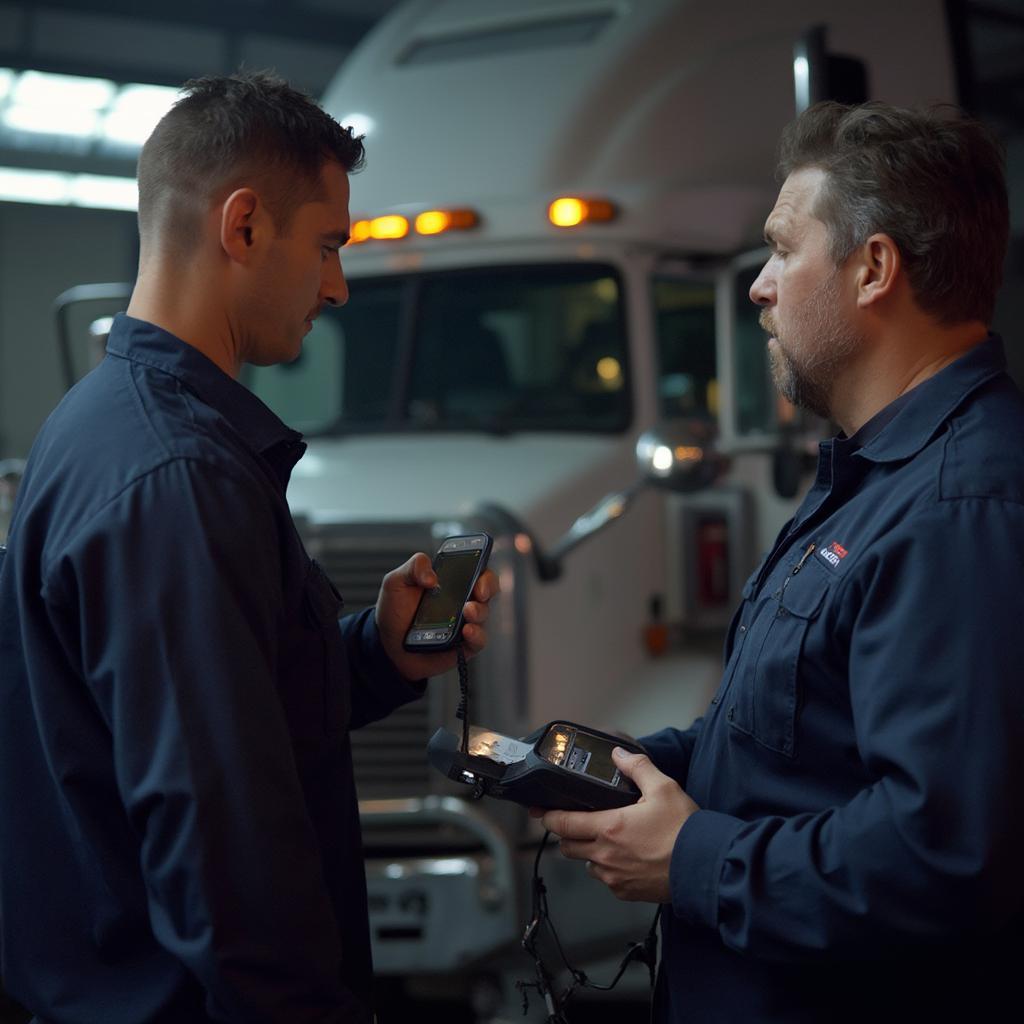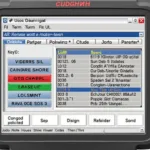A non-functional OBD2 port on your diesel vehicle can be frustrating, especially when troubleshooting. Many diesel owners consider disconnecting the battery to fix diesel OBD2 issues. This article delves into the reasons behind OBD2 port malfunctions in diesel vehicles and explores whether disconnecting the battery is an effective solution. We’ll explore the intricacies of diesel OBD2 systems, common problems, and effective troubleshooting steps, including when disconnecting the battery might be helpful.
Understanding Diesel OBD2 Systems
Diesel OBD2 systems, while similar to their gasoline counterparts, often have unique quirks. These systems monitor various engine parameters, emissions, and other crucial components. Understanding the complexities of these systems is vital for effective troubleshooting. Diesel engines operate differently than gasoline engines, and this affects how the OBD2 system functions. For example, diesel engines don’t have spark plugs, so the OBD2 system won’t track misfires in the same way.
Common Reasons for Diesel OBD2 Port Malfunctions
Several factors can contribute to a malfunctioning OBD2 port in diesel vehicles. These range from simple issues like blown fuses to more complex problems like wiring harness damage. Knowing the potential culprits can save you time and money.
- Blown Fuses: One of the most common causes is a blown fuse in the circuit that powers the OBD2 port.
- Wiring Issues: Damaged or corroded wires in the OBD2 connector or the wiring harness can disrupt communication.
- Faulty OBD2 Scanner: Sometimes, the problem isn’t with the vehicle but with the OBD2 scanner itself.
- ECM/PCM Problems: Issues with the Engine Control Module (ECM) or Powertrain Control Module (PCM) can also affect the OBD2 port’s functionality.
Disconnecting the Battery: A Potential Solution?
Disconnecting the battery can sometimes resolve OBD2 issues. By resetting the vehicle’s electrical system, it can clear temporary glitches or communication errors that might be affecting the OBD2 port. However, it’s not a guaranteed fix and should be approached with caution.
When to Disconnect the Battery
Disconnecting the battery can be useful in situations where a software glitch or communication error is suspected. If you’ve tried other troubleshooting steps and the OBD2 port is still not working, disconnecting the battery for a few minutes might help.
How to Safely Disconnect the Battery
- Safety First: Always wear safety glasses and gloves when working with a car battery.
- Negative First: Disconnect the negative terminal first, followed by the positive terminal.
- Reconnect Carefully: When reconnecting, attach the positive terminal first, then the negative.
Troubleshooting Diesel OBD2 Issues
Before resorting to disconnecting the battery, consider these troubleshooting steps:
- Check the Fuses: Inspect the fuse box for any blown fuses related to the OBD2 port. obd2 connector replacement
- Inspect the OBD2 Connector: Check for any signs of damage, corrosion, or loose pins in the OBD2 connector itself.
- Try a Different OBD2 Scanner: If possible, test with a known working scanner to rule out a faulty scanner. obd2 connector replacement
- Consult a Mechanic: If the problem persists, it’s best to consult a qualified diesel mechanic for further diagnosis.
Expert Insight: “Disconnecting the battery can be a useful first step in troubleshooting electrical issues, but it’s not a magic bullet. It’s crucial to systematically check other potential causes before assuming a more complex problem.” – John Davis, Certified Diesel Mechanic
Conclusion
A non-working diesel OBD2 port can be a headache, but by understanding the system and following the proper troubleshooting steps, including when and how to safely disconnect the battery, you can often resolve the issue. Remember to always prioritize safety and consult a professional if the problem persists. Addressing diesel obd2 not working by disconnecting the battery can be a temporary solution, but a thorough diagnosis is always recommended.
Expert Insight: “While disconnecting the battery might clear temporary glitches, it won’t fix underlying hardware problems. A proper diagnosis is essential to identify the root cause of a malfunctioning OBD2 port.” – Maria Sanchez, Automotive Electrical Engineer
FAQ
- Will disconnecting the battery erase my car’s settings? Yes, disconnecting the battery can erase some vehicle settings, such as radio presets and clock settings.
- How long should I disconnect the battery? Disconnecting the battery for 15-30 minutes is usually sufficient to reset the electrical system.
- Is it safe to disconnect the battery myself? Yes, as long as you follow the proper safety precautions.
- What if disconnecting the battery doesn’t fix the problem? If the problem persists, consult a qualified diesel mechanic for further diagnosis.
- Can a faulty OBD2 scanner cause communication issues? Yes, a faulty scanner can prevent communication with the vehicle’s OBD2 system.
- Are there different types of OBD2 scanners for diesel vehicles? While most OBD2 scanners work with both gasoline and diesel vehicles, some specialized scanners are designed specifically for diesel engines.
- What should I do if I suspect a problem with my vehicle’s ECM/PCM? Consult a qualified diesel mechanic immediately.
Need further assistance with your diesel OBD2 issues? Contact us via WhatsApp: +1(641)206-8880, Email: [email protected] or visit us at 789 Elm Street, San Francisco, CA 94102, USA. Our 24/7 customer support team is ready to help.

